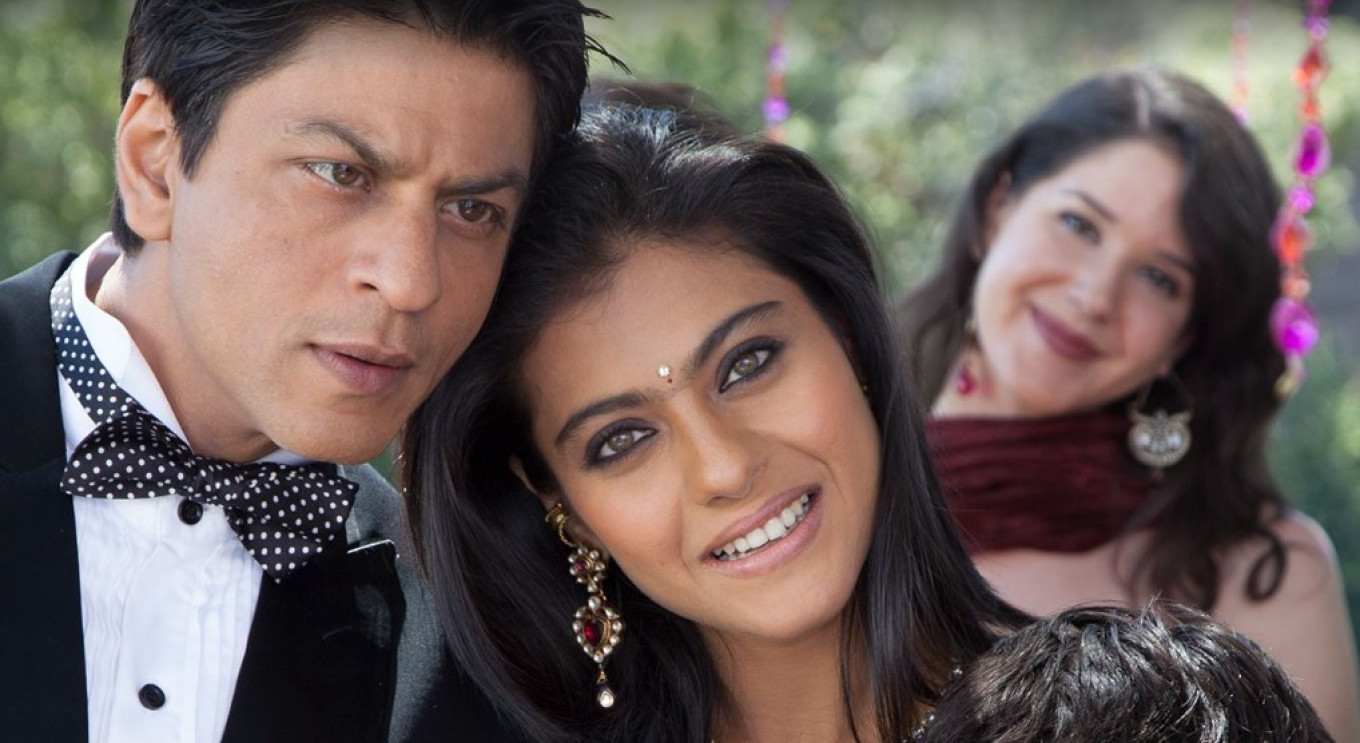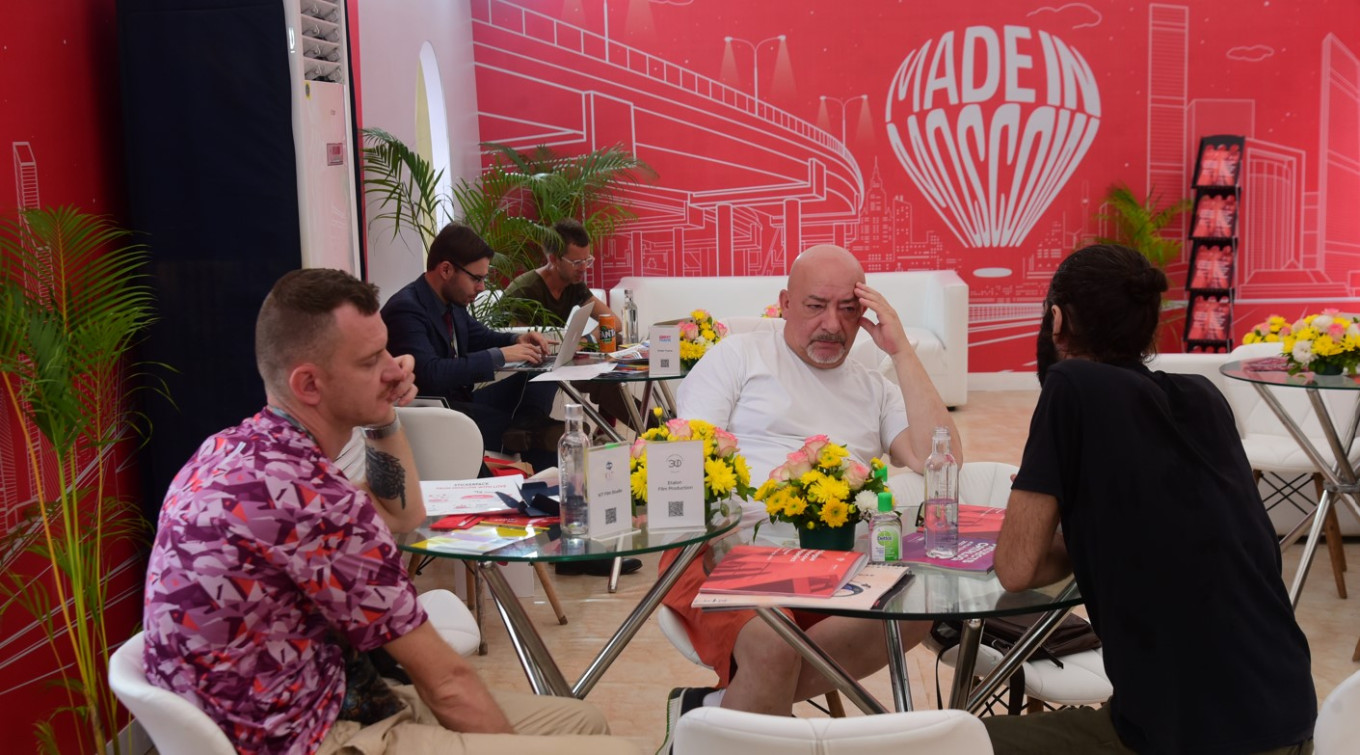In 2022, Russian filmmkers were virtually shut out from Western markets. They were not invited to the world’s main film festivals and their films were boycotted.
The alternative? Go East.
The logical first step was to try to forge closer ties with India, which has the largest film industry in the world and a long tradition of cinematic exchange with Russia.
The International Film Festival of India (IFFI) Goa at the end of November was where the Russian film industry’s efforts kicked off.
Russia’s state film body Roskino and the Moscow Export Center filled two pavilions at Film Bazaar, South Asia’s largest film market, with over 40 Russian delegates representing 14 Russian companies. Roskino came to India with more than 30 films, series, and animated features from 10 different companies.
At the film bazaar
One of the most active Russian film companies at the festival was “Central Partnership,” which used to buy and distribute European cinema and Hollywood films for Russian market.
Since content from these countries practically ceased to be available in Russia in 2022, the distributors were looking for Indian films they could release in Russian movie theaters.
Film companies were also looking for distributors to buy Russian productions, particularly animation: more than a third of the Russian projects on the Film Bazaar market were animated features.
Soyuzmultfilm, for example, promoted a new animated feature called “Chink: Tailed Detective” and the animation studio Platoshka was selling a musical animated series for toddlers. The Amazon Prime India platform and the Indian Toonz Media Group reportedly expressed interest in developing a musical series with Russian companies.
Russian studios also showcased a variety of family films and comedies that have proved popular on international streaming services. These seem to have hit the mark.
A Roskino representative said:“family adventure films, fantasy and science fiction films, comedies, mystical thrillers, historical and sports dramas, as well as animation and series” were all well-received.

Old and new markets
Just a few decades ago, films starring Indian actor Raj Kapoor collected huge box office receipts in Russia.
Roskino’s representative in India, Sarfaraz Alam Safu said he thinks they can do it again.
Alam Safu, who is also the owner of Indian Films company that distributes films in Russia, said he thought Indian movie stars like Shah Rukh Khan can make more money in Russia and former Soviet countries than on the Western market.
In early December, Alam Safu’s company worked with Indian and Russian cultural institutions to organize the fifth festival of Indian cinema. Held in 24 Russian cities, including Moscow, St. Petersburg, it featured one of the most beloved films in Russia – the musical melodrama “Disco Dancer.”
It also showed Karan Johar’s very popular film “My Name is Khan,” which tells the story of an Indian with Asberger’s syndrome confronted with Islamophobia in the U.S. after 9/11.
The festival was opened by the action-adventure “Pushpa. Ascension” written and directed by Sukumar Banreddy, who came with the movie’s stars and producer Ravi Sankar.
One movie-goer told The Moscow Times, “Once upon a time, when the Russian audience was not spoiled by Hollywood films, Indian cinema brightened our everyday life. These films are a different experience… not just passionate songs and dances, but also serious stories that reveal the diversity of Indian culture and life. I have begun to discover this region again.”

The Russian film industry is not exploring opportunities in India alone. In early November, the Russian-Singapore Business Council hosted its third Russian Film Week.
Singaporean and Malaysian viewers saw recent Russian films of various genres, ranging from the comedy “Serf” to the sports film “Eleven Silent Men” and melodrama “Dear Papa.”
A month later the Russian Film Festival kicked off in Bangkok with the animated series “Kid E-Cats,” a romantic comedy by Sonya Karpunina “Desperate for Marriage,” Valery Todorovsky’s drama “Bolshoi” and Yegor Abramenko’s horror film “Sputnik,” among other films.
And, on Dec. 12, Moscow hosted a conference for key figures in Russian cinematography to discuss the current developmental challenges faced by the industry. Speakers said that Russia had a chance to completely rebuild its film industry and its distribution in co-production with what are now called “friendly countries.”
The bad news is that results might be noticeable only towards early 2025, and a complete overhaul may take another five to ten years.





